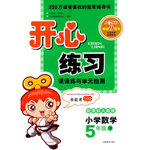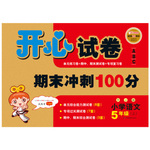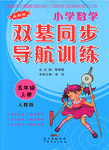
Hard-working though he was, ______ there was never enough money for him to pay the bills.
A. / B. and C. but D. it
 开心练习课课练与单元检测系列答案
开心练习课课练与单元检测系列答案 开心试卷期末冲刺100分系列答案
开心试卷期末冲刺100分系列答案 双基同步导航训练系列答案
双基同步导航训练系列答案科目:高中英语 来源:2012-2013学年江苏南通高三第一次调研考试英语试卷(解析版) 题型:完型填空
“Scotty!” Mr. Brown, my Year 11 English teacher, called me by my nickname (绰号) across the classroom. His eyes were bright and a secret 36 was half hidden behind the beard.
Once he finished joking over my unbearable 37 , I realized he was going to read my story aloud to the class. I turned red, feeling at once both embarrassed and 38 . I had my very 39 reading audience! Though my classmates were a ‘passive audience’, it didn’t weaken my feeling of being 40 .
After that, I came to 41 those Year 11 English classes. Throughout school I had always studied hard and achieved well in my school subjects. But creative 42 was a passion, and it was not an assignment, but a way of understanding the world and of 43 my thoughts and feelings about events and attitudes.
Mr. Brown was the first to 44 me for my writing so openly. My scores were always 19/20 or 20/20. My stories were often read out to the class. He even 45 one with the respected Head of English teachers, which was the most 46 part that is impressed on my memory. But 47 that, he offered a belief in me that no other teacher had.
My school 48 often stated, ‘Candice is a quiet achiever.’ I thought it was meant as a(n) 49 for being hard-working. I was someone that no one really 50 before, but Mr. Brown managed to 51 all that by bringing me to the attention of the world. Though it was the relatively 52 world of school, it put the seed of belief in myself that some day I could be an 53 person rather than the person who faded into the background.
I 54 touch with my teacher long ago, as we do when we move away from the school system and enter life. I wish I could tell him now how much he 55 me.
1.A. trick B. fear C. surprise D. smile
2.A. sadness B. shyness C. weakness D. kindness
3.A. ashamed B. calm C. thrilled D. depressed
4.A. unfriendly B. devoted C. small D. first
5.A. special B. intelligent C. famous D. diligent
6.A. love B. hate C. attend D. miss
7.A. thinking B. reading C. writing D. speaking
8.A. organizing B. collecting C. expressing D. hiding
9.A. train B. recommend C. criticize D. acknowledge
10.A. compared B. shared C. composed D. exchanged
11.A. interesting B. shocking C. challenging D. exciting
12.A. more than B. other than C. instead of D. in spite of
13.A. days B. efforts C. books D. reports
14.A. praise B. urge C. reason D. competition
15.A. believed B. noticed C. supported D. respected
16.A. forget B. compensate C. change D. prove
17.A. developed B. limited C. preserved D. disturbed
18.A. important B. educated C. honest D. optimistic
19.A. sought B. regained C. lost D. ignored
20.A. owed B. influenced C. satisfied D. attracted
查看答案和解析>>
科目:高中英语 来源:2015届江苏省高一第一次阶段练习英语试卷(解析版) 题型:其他题
请认真阅读下列短文,并根据所读内容在文章后表格中的空格里填入最恰当的单词。
When it comes to studying, some students may have different study habits, and some ways of studying may work for one and may not for another student. However, there are certain basic rules that can prove to be effective(有效的) in studying for an exam.
Make a plan for how to develop good study habits that last long. A plan should include a schedule(时间表) on when to study. It doesn’t have to be fixed(固定) and can be changed in case something more important and unexpected comes up. Start with a weekly schedule and determine which period of the day is filled with classes. Use some of the remaining time to study. When creating(制定) the schedule, one should include laboratory activities and extracurricular(课外的) work and take care of personal things and the job if there is one.
Study when one is fully awake and energetic(精力充沛); it is recommended. Study for no less than 30 to 90minutes after a meal or two hours every day. If one is tired from work and decides to study, it may not be effective, especially if one finds the subject too difficult. It will only give stress and that night might only be forgotten in the next morning when he wakes up. For some students, they can study anywhere if they want; it could be in the library, study rooms or private rooms. A place where one can to focus attention on one’s study is recommended.
Make friends with those that are also eager to learn and pass the exam or achieve good grades. However, one has to balance(平衡) the time to spend with friends. Have and keep a healthy relationship with them.
Take down notes during the class. The hints(暗示) of some questions teachers give will come out in the exam. Sometimes they repeat the topic more than twice, so pay more attention in class. If one does not understand the topic, don’t hesitate(犹豫) to ask questions. A failure in communicating is one of the most common mistakes among students.
Rewrite notes taken from the class. It will help remember the topics that have been discussed and will give one more new ideas. For some students, they find that rewriting notes is very effective.
Take a five-minute break or go out and get some fresh air once in a while when studying. It will relax the mind and help one think better. Do come back to study after taking a short break.
|
Title |
How to be effective in studying for an exam |
|
Theme |
Although students’ study habits are 1. , some basic rules can be helpful for them. |
|
Creating a schedule |
*The schedule should not be fixed because something important or that you weren’t 2. may happen. *Start with a weekly schedule and include all possible things. |
|
(73) and place |
*Study during the time when you are fully awake and full of 3. . *Choose a suitable place where you can 4. your attention study. |
|
The right friends |
*Make friends with hard-working students. *Balance the time or your relationship with them will be 5. . |
|
(77) in class |
*Take down the hints a something that is repeated many times during the class. *Never hesitate to6. with teacher. |
|
Rewriting notes |
Writing notes again is7. in remembering well what you have learned. |
|
Taking a break |
A short break will make your mind8. . |
查看答案和解析>>
科目:高中英语 来源:2015届四川省宜宾市高一下学期半期考试英语卷(解析版) 题型:阅读理解
Last week my youngest son and I visited my father at his new home in Tucson, Arizona. He moved there a few years ago, and I was eager to see his new place and meet his friends.
My earliest memories of my father are a tall, handsome, successful man devoted to his work and his family, but uncomfortable with his children. As a child I loved him; as a school girl and young adult I feared him and felt bitter(痛苦的) about him. He seemed unhappy with me unless I got straight A’s and unhappy with my boyfriends if their fathers were not as “successful” as he was. Whenever I went out with him on weekends, I used to struggle to think up things to say, feeling on guard.
On the first day of my visit, we went out with one of my father’s friends for lunch at an outdoor café. We talked along that afternoon, did some shopping, ate on the street table, and laughed over my son’s funny facial expressions. Gone was my father’s critical (挑剔的) air and strict rules. Who was this person I knew as my father, who seemed so friendly and interesting to be around? What had held him back before?
The next day dad pulled out his childhood pictures and told me quite a few stories about his own childhood. Although our times together became easier over the years, I never felt closer to him at that moment. After so many years, I’m at last seeing another side of my father. And in so doing, I’m delighted with my new friend. My dad, in his new home in Arizona, is back to me from where he was.
1.Why did the author feel bitter about her father as a young adult?
A.He was silent most of the time. B.He was too proud of himself.
C.He did not love his children. D.He expected too much of her.
2.When the author went out with her father on weekend, she would feel .
A.nervous B.sorry C.tired D.safe
3.What does the author think of her father after her visit to Tucson?
A.More critical. B.More talkative
C.Gentle and friendly. D.Strict and hard-working.
4.The underlined words “my new friend” in the last paragraph refer to .
A.the author’s son B.the author’s father
C.the friend of the author’s father D.the café owner
查看答案和解析>>
科目:高中英语 来源:2015届四川棠湖中学外语实验学校高一月考英语卷(解析版) 题型:单项填空
Li Ming is clever, honest, and hard-working. _________, he is a good student and we should learn from him.
A.In a nutshell B.After all C.On the other hand D.By the way
查看答案和解析>>
科目:高中英语 来源:2012-2013学年江西省新余市高三第七次模拟考试英语试卷(解析版) 题型:单项填空
It is believed that high achievers are ambitious, hard working, and work toward personal standards of excellence _____ material rewards.
A.other than B.or rather C.rather than D.or else
查看答案和解析>>
湖北省互联网违法和不良信息举报平台 | 网上有害信息举报专区 | 电信诈骗举报专区 | 涉历史虚无主义有害信息举报专区 | 涉企侵权举报专区
违法和不良信息举报电话:027-86699610 举报邮箱:58377363@163.com